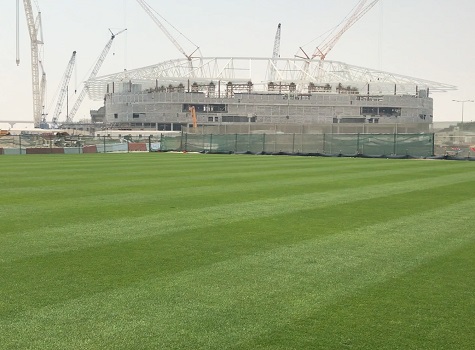At the next FIFA World Cup, games will be played on premium turfgrass known as Platinum TE Paspalum.
After years of comprehensive testing, the Supreme Committee for Delivery and Legacy selected Platinum TE as the playing surface for all stadiums and training sites hosting the November 2022 event in Qatar.

In a joint venture, Aspire Sports Turf of Qatar and international sports turf consulting organisation STRI conducted extensive research on which to base their selection. Varieties of seashore paspalum, bermudagrass, and zoysia turfgrasses were tested at multiple sites. Platinum TE Paspalum proved to be the most durable and shade tolerant of the turfgrasses tested, outperforming the other varieties in recovery as well. Establishment and grow-in from stolons were also quicker.
Grassing has begun at multiple stadiums and training facilities. To ensure genetic purity and the highest quality, the Platinum TE Paspalum being utilised is licensed and certified plant material from global turfgrass supplier Atlas Turf International. Grassing will continue as the remaining facilities are completed over the next two years.
“For over a decade, Platinum TE Paspalum has performed consistently well for projects in the Middle East,” said Atlas Turf President, John Holmes. “It’s not surprising that it was singled out as the top performer and ultimately selected for Qatar 2022. In the testing, Platinum TE exhibited stronger tensile strength, greater ability to grow in low light conditions, and rapid recovery from injury.”
Introduced in 2007 by noted plant scientist Dr. Ron R. Duncan, the turfgrass features characteristics sought out for championship-quality sporting facilities including athletic fields and golf courses. In addition to the benefits highlighted in the research results, it exhibits exceptional density, disease resistance, and superior salt tolerance. With dark green color and superior striping, Platinum TE delivers strikingly attractive fields.